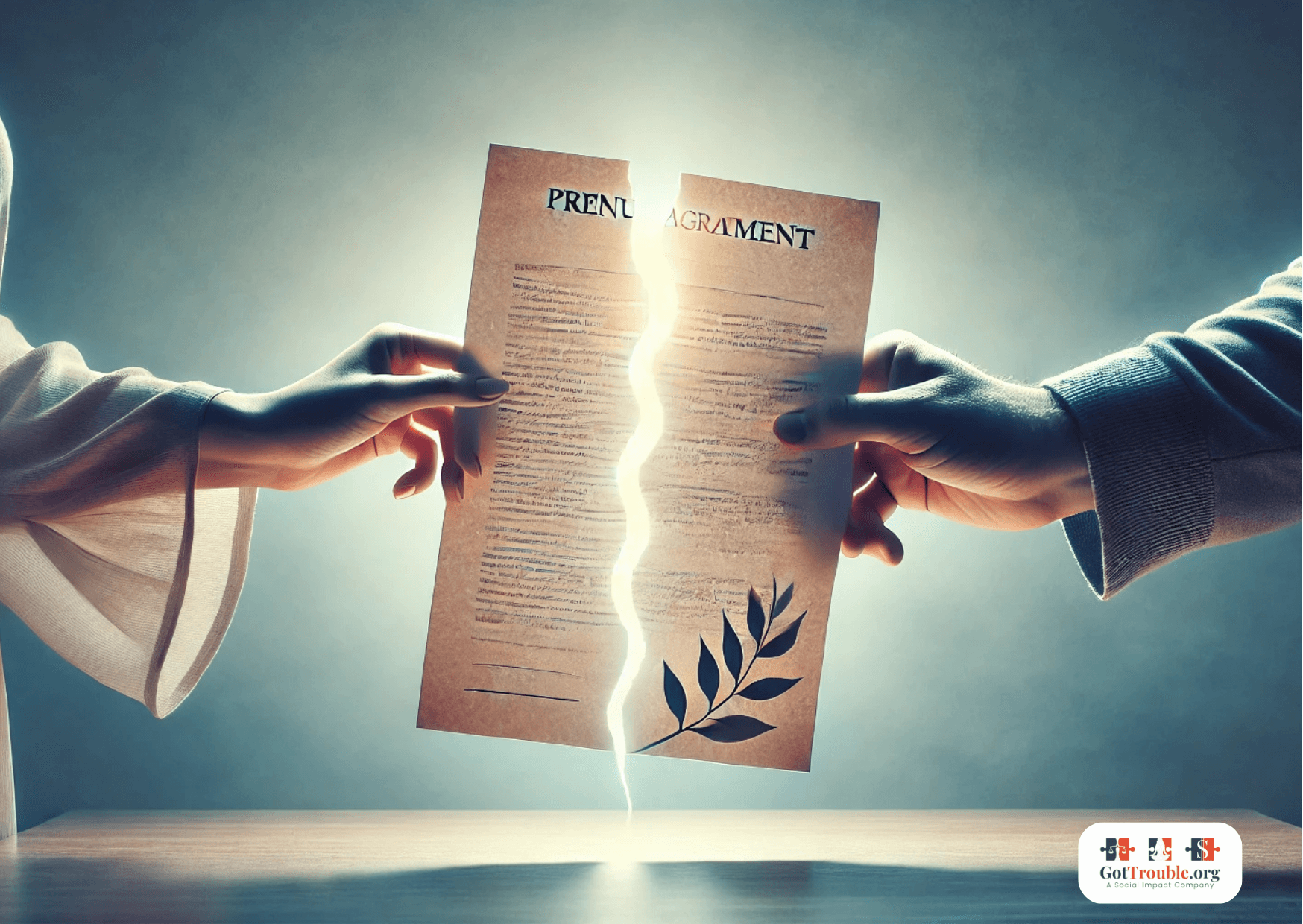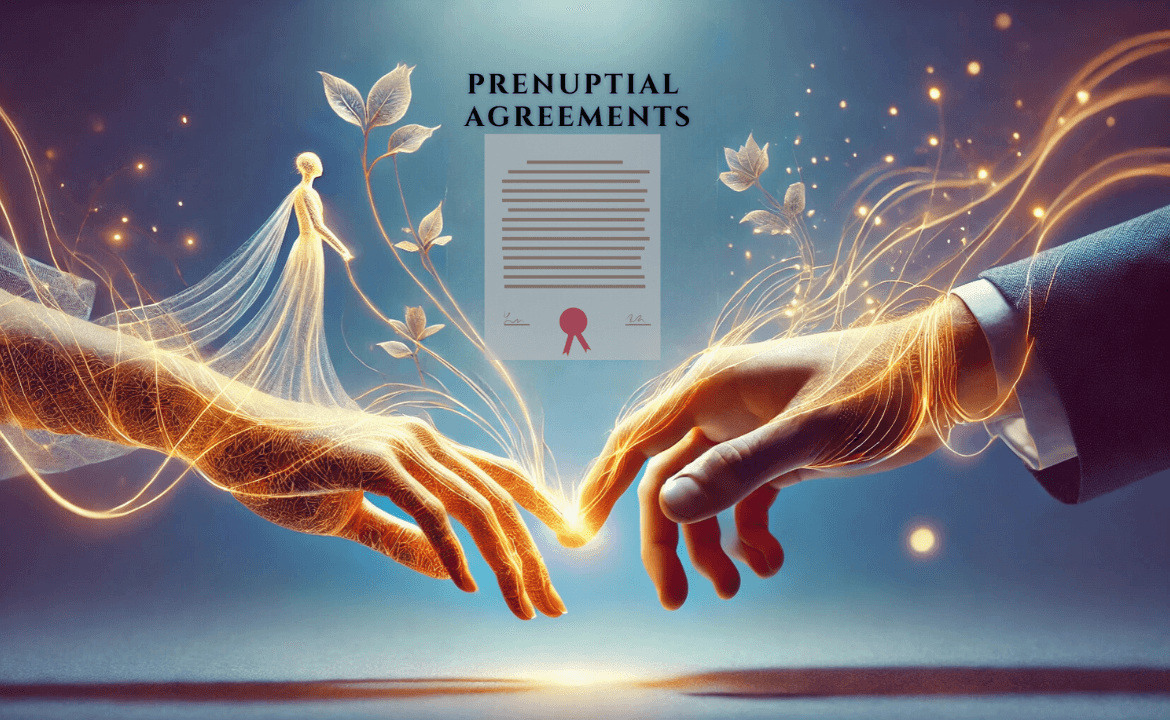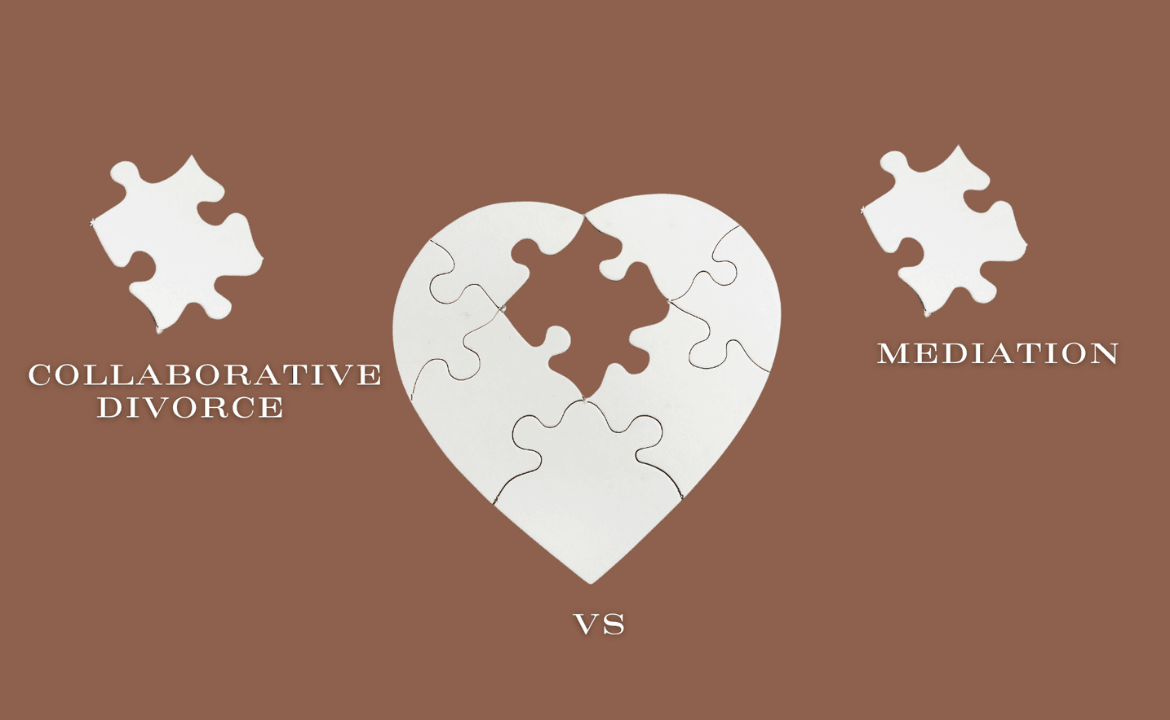We will explore the strategic purposes of prenuptial agreements and their impact on divorce outcomes.
This article will also cover many of the basics, such as:
- What Is a Prenup or Prenuptial Agreement?
- What to Expect If You Get Divorced but Have a Prenup?
- Does a Prenup Always Hold Up in Court?
- Can a Prenup Streamline the Divorce Process?
- Benefits of a Prenup in Divorce
- Updating and Revising Prenups
- Common Misconceptions about Prenuptial Agreements
- Common Fears Related to Prenuptial Agreements
- Crucial Questions About Prenuptial Agreements
Introduction
Prenuptial agreements often get a bad rap and are associated with many misconceptions. Still, they can be a smart way to manage financial expectations and protect assets if a divorce occurs.
We will look at various scenarios of what happens if you sign a prenup and get divorced later.
We first need to understand how prenups work in divorce and their potential benefits and drawbacks in divorce proceedings.
We will also spend some time clearing up common misunderstandings around prenuptial agreements.
What Is a Prenup or Prenuptial Agreement?
A prenuptial agreement is a legally enforceable contract between two people before they marry. It covers how the couple will divide their assets and handle financial responsibilities should their marriage later dissolve.
Prenups can cover a wide range of topics, such as who will own the marital property, who will pay off marital debts, and, perhaps most importantly, the amount of spousal support one spouse will need to pay the other.
The main goal is to bring clarity and peace of mind to both partners so that there is less chance of fighting over money and property if the relationship ends.
Plus, if one of you is entering the marriage with substantial assets (or debt), a prenup can uncover these facts, making your financial future with your spouse more honest and transparent.
Prenups are becoming increasingly popular. They reflect a more mindful and pragmatic approach to marriage in which personal assets, inheritances, and past financial obligations are clearly disclosed from the outset—a very smart approach to what might be a life-long commitment between partners.
What to Expect If You Get Divorced but Have a Prenup?
If you are facing a divorce, a legally valid prenup can simplify the process. It establishes clear agreements regarding property division, spousal support, and debt responsibilities.
It’s important to remember that while a prenuptial agreement can clarify post-divorce rights and obligations, it will not eliminate the risk of legal disputes and court challenges to the prenuptial agreement.
We need to remember that marriage is a fluid experience for most. Changes to income, acquisition of new assets, or unexpected money issues can make one spouse regret entering the prenup and want to modify its terms.
While a prenup can streamline many aspects of a divorce, you shouldn’t be naïve as to its potential impact should you be facing a contentious divorce.
You need to be legally protected. Remember, a prenuptial agreement is legally binding and enforceable, which can radically affect your financial future. Therefore, consulting with an experienced divorce lawyer before and during its drafting is essential.
Trouble Tip
How Assets Are Split in a Divorce with a Valid Prenup?
When a valid prenuptial agreement is in place, the division of assets during a divorce will typically follow the specific terms stated in that agreement.
To understand how property division works in divorce, we must understand the difference between separate and marital property, also called community property.
Personal vs. Marital Assets
The difference between separate and marital property
Under most state laws, personal assets acquired before the marriage are considered the individual and separate property of that person and are not subject to division between the parties.
On the other hand, all money, property, and assets acquired during the marriage are presumptively considered marital property. This property is owned jointly by the parties and will be jointly divided among the two parties.
However, if the parties had signed a valid prenuptial agreement, its terms would control the division of property and other marital rights and obligations, such as alimony.
Spousal Support – Alimony
Prenuptial agreements can detail the duration of support, the amount to be paid, or even whether support will be given at all.
While a clear and valid prenuptial agreement can initially seem acceptable, it can quickly become emotionally charged during divorce proceedings. This underscores the importance of understanding all its terms and the potential implications of signing one.
You cannot count on or assume a divorce court will approve your prenuptial.
Statistic: Rising Popularity Among Millennials and Gen Z in the US: A Harris Poll survey indicates that about 47% of engaged or married millennials in the United States have a prenuptial agreement, compared to 20% of the general married population.
Does a Prenup Always Hold Up in Court?
Prenups can be contested in court
Under the law, for a prenup to be legally enforceable, it must:
- Be in writing
- Signed by both partners
- Contains full financial disclosure
- Be mutually agreed upon without undue pressure

Legal Reasons for Invalidating a Prenuptial Agreement
Judges have discretionary powers to rule that all or part of a prenuptial agreement is legally invalid if the court determines that the document contains unconscionable, dishonest, or blatantly one-sided terms and conditions.
Here are some common factors that can invalidate a prenup’s enforceability:
- Lack of Voluntariness: A prenup may not be considered valid if one party was forced or coerced into signing it.
- Inadequate Disclosure: The agreement might be challenged if the parties do not fully disclose their assets and debts.
- Unconscionable Terms: A court may refuse to enforce a prenuptial agreement if its terms are excessively unfair or one-sided.
- Improper Execution: A prenup must be in writing and signed by both parties. Any deviation from this will jeopardize its validity.
- Lack of Legal Counsel: Judges may expect both parties to have independent legal counsel during the prenup process.
- Changes in Circumstances: Major life changes, such as having children or being in a disabling accident, may require reevaluating the prenup’s terms to remain relevant and fair.
- Witnessed and Notarized: Most jurisdictions require the prenup to be properly witnessed and notarized to increase its legitimacy.
Now that we have examined how a prenuptial agreement can be invalidated through dishonesty, manipulation, coercion, and the inclusion of unconscionable terms, let’s discuss the upside of a mindful and properly drafted prenuptial agreement and its benefits should the marriage end in divorce.
Can a Prenup Streamline the Divorce Process?
Having a prenuptial agreement can significantly streamline the divorce process.
Prenups can reduce the potential for conflict, confusion, and stress during an already emotionally challenging set of circumstances by clearly establishing the terms surrounding asset division, spousal support, and debt responsibilities ahead of time.
Obtaining Clarity and Closure
Some partners enter into a prenuptial agreement because they genuinely want clarity and closure should the marriage end in divorce. Settling potential property disputes before they surface is a much better alternative.
Given this mindset, let’s take a closer look at these benefits:
- Clear Financial Separation: Couples who know precisely what they want to keep and what they want to divide.
- Reduce Litigation: With major issues settled in advance, there’s less need for litigation, which can be costly and time-consuming.
- Emotional Ease: Reducing conflicts over assets and finances can lower the emotional anxiety of divorce.
- Clarity Around Debt: Prenuptial agreements can also include how debt will be handled, such as who is responsible for any preexisting debt and how any debt accrued during the marriage will be managed. Sometimes, the divorcing parties have recently emerged from home foreclosure and bankruptcy
This way, both partners know their financial responsibilities, which helps avoid one person getting stuck with the other’s debts from before the marriage.
Since both sides have already considered and agreed upon the major issues surrounding a potential divorce, there may be little need for lengthy negotiations or court battles.
This level of clarity can help former partners reach a quicker and friendlier resolution, saving time, legal costs, and emotional stress.
Statistic: Gender Shift in Initiation: Historically, men predominantly initiated prenuptial agreements. However, recent data shows that 52% of women now initiate the prenup process, reflecting a shift towards financial autonomy and protection.
Myths About Prenups
Myth: Prenups are only for the rich
Reality: Prenups can benefit anyone, not just the wealthy. They protect personal assets, debt responsibilities, and financial expectations, which is good for all couples.
Myth: Prenups leave one spouse with nothing
Reality: Courts review prenups for fairness and can reject unfair agreements, so one spouse can’t get screwed.
Myth: Prenups can include anything
Reality: Prenups can’t include clauses that are illegal or against public policy, such as fraud or waiving child support. They have to be legal to be enforceable.
Myth: Prenups are permanent and can’t be changed
Reality: Prenups can be updated, modified, or revoked after marriage with postnuptial agreements so couples can adjust terms as circumstances change.
Statistic: Impact on Divorce Rates: Research by the Marriage Foundation suggests that prenuptial agreements neither increase nor decrease the likelihood of divorce, indicating that their primary role is to provide financial clarity rather than influence marital stability.
Common Fears Related to Prenuptial Agreements
Fear: Being forced to sign a prenup
Reality: A prenup must be signed voluntarily and without duress. A court can declare the agreement invalid if one party proves they were forced to sign it.
Fear: Losing marital property rights
Reality: A prenup can outline asset division but can’t remove legal rights to marital property. Courts review prenups to make sure they are fair and reasonable.
Fear: Legal complexity and cost
Reality: While drafting a prenup costs legal fees, it can save you tens of thousands in divorce litigation and emotional distress. That’s why you need to get your own legal advice if you want to end up with a fair and comprehensive agreement.
Fear: A prenup is unromantic and will ruin our relationship
Reality: Talking about a prenup can bring transparency and trust to a relationship. It forces couples to have a financial conversation, strengthening the bond.
Watch San Francisco Divorce Attorney Diana Romanovska discuss what cannot be included in California prenuptial agreements:
People Also Ask:
Is Updating and Revising Prenups Possible?
Circumstances change, and a prenup might need to be updated to reflect new realities, such as the birth of children, significant financial changes, or major shifts in life circumstances. Couples can amend their prenups through postnuptial agreements, which have the same force and effect as prenups but are signed after the marriage.
How Long Do Prenups Last?
Prenuptial agreements remain in effect until the specified conditions for termination are met or until they are revoked. Typically, a prenup does not expire automatically; it stays in place to guide how assets are divided and other terms during the marriage or should the marriage end in divorce.
Some couples may choose to revisit and update their prenup at predetermined intervals or after significant life events, such as a disabling injury or unexpected financial circumstances.
Couples should chat openly about their prenup to ensure it reflects their current situation and goals.
Does Cheating Nullify a Prenup?
Most of the time, cheating doesn’t automatically cancel out a prenuptial agreement. Prenups mainly focus on financial issues and how to divide assets, not how people behave in marriage. Some state jurisdictions may take different approaches to dividing property upon divorce, with or without a valid prenuptial agreement.
Notwithstanding, some prenups might have specific clauses about what happens if someone cheats, such as losing certain rights or benefits. Unless there’s a clause like that, cheating alone usually isn’t enough to challenge a prenup.
It’s important to understand the details of your agreement, and you should not hesitate to seek legal advice if you have any questions about its validity regarding the parties’ personal behavior, such as neglect or drug and alcohol abuse.
Are Children Part of a Prenup?
Prenuptial agreements can help settle property and financial issues, but they typically don’t cover matters like child custody or child support.
Those decisions must comply with state divorce law, which protects and prioritizes the children’s best interests in divorce matters.
However, a prenuptial agreement may outline parents’ financial responsibilities toward their children, including expenses related to education and healthcare, provided that these terms do not conflict with state laws or the court’s mandates.
Does a Prenup Cover Future Inheritance?
Prenuptial agreements can cover what happens with future inheritances, such as one spouse receiving an inheritance while married.
Many couples add clauses stating that these inheritances remain the separate property of the spouse who receives them. This helps prevent those assets from being divided in a divorce.
This kind of planning helps avoid conflicts over inherited money for both partners.
What are Special Clauses in Prenuptial Agreements?
Divorce Tip
Sunset clauses can also create a sense of security and flexibility, allowing couples to revisit their agreement and adapt it to new situations like income changes, family growth, or shifting life goals.
A sunset clause can be a smart way to ensure both partners feel equally committed to the marriage’s future and financial well-being.
Do You Always Need an Attorney for a Prenup?
Definitely, prenuptial agreement laws can be complex and vary by state jurisdiction.
If you sign a prenup without legal counsel, you may not fully understand the rights you are waiving or the potential consequences that could arise during a divorce.
Can a Prenup Leave a Spouse with Nothing?
Depending on its terms, a prenuptial agreement can leave a spouse with few or no assets in a divorce. However, courts will review prenups for fairness, ensuring that they are not excessively one-sided, which contradicts the court’s desire to achieve a fair divorce outcome.
Are You More Likely to Get Divorced If You Sign a Prenup?
Prenuptial agreements don’t increase the chances of divorce. In fact, they can help strengthen marriages by prompting open conversations about finances and expectations.
Some studies even say that talking about a prenup can help couples spot potential conflicts early. A sign of emotional intelligence for both partners.
While a prenup doesn’t decide whether a marriage will succeed or fail, it influences how partners handle their financial interactions.
What Happens If You Sign a Prenup and Your Spouse Dies?
When a spouse passes away, the impact of a prenuptial agreement depends on its specific terms and local inheritance laws.
Typically, a prenup details asset division and may address death benefits like life insurance. Couples should ensure their estate plans align with their prenup to reflect their intentions accurately.
Bottom Line:
Signing a prenuptial agreement can help couples feel more at ease if things don’t work out in their marriage. While it won’t eliminate conflicts, a prenup clearly outlines financial responsibilities, asset division, and alimony terms that both partners agree on.
If a divorce happens, it acts like a roadmap for dividing assets and debts.
That said, it’s important to know that prenups can be challenged in certain situations, and their enforceability often hinges on how they were put together.
Finally, it’s highly recommended that both parties to a prenuptial agreement retain independent and experienced counsel to help negotiate its terms and conditions and ensure compliance with local laws and principles of fairness.











































